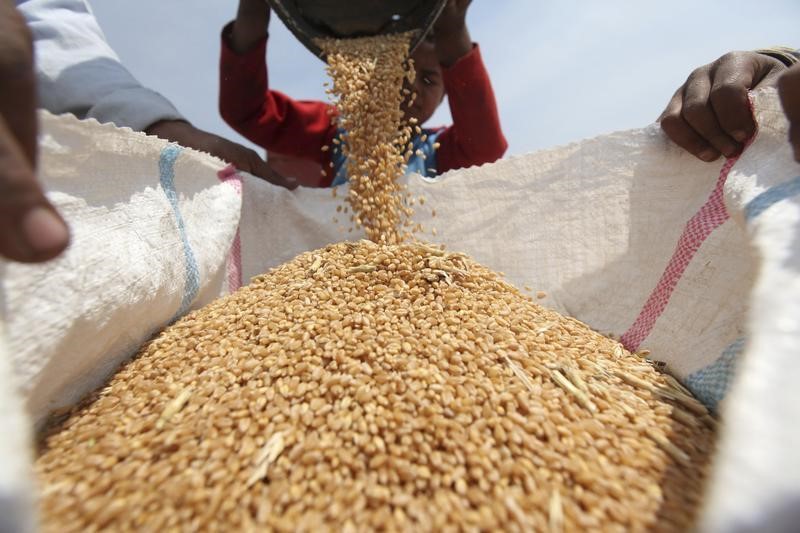(Bloomberg) -- Benchmark wheat in Chicago climbed above $8 a bushel for the first time in almost nine years amid growing inflation pressures that threaten to raise already soaring food prices worldwide.
Futures linked to other grain varieties in the U.S. and Europe also surged, with Paris milling wheat futures nearing an all-time high and Minneapolis spring wheat reaching the priciest level since April 2008.
Top importers are bulking up on grain amid limited global supplies after poor weather struck harvests in major exporting countries this year. That’s spurred wheat’s longest streak of monthly gains since 2007. Some growers also are contending with dry weather at planting time as well as soaring fertilizer costs that risk denting next year’s harvests.
“Speculators keep talking about inflation and are buying commodities for an inflation trade,” Jack Scoville, vice president for Price Futures Group in Chicago, said in a note.
Saudi Arabia’s state buyer booked 1.3 million tons of wheat in a tender this past weekend, almost double the amount expected. Plus, top importer Egypt is returning to the market with a tender on Monday -- less than a week after its largest purchase of the season.
Benchmark soft red winter wheat, used in cookies and cakes, rose as much as 3.6% to $8.005 a bushel, the highest since December 2012. Hard red winter wheat, heavily relied on for all-purpose flour, gained as much as 3% to reach $8.095 a bushel, the loftiest price since May 2014.
The prospect of lingering supply issues next year boosts the chances wheat prices will continue surging and worsen food inflation. The latest United Nations figures show food prices at a decade-high amid harvest setbacks and supply chain disruptions.
Supply concerns, fueled by surging fertilizer prices, also lifted corn futures. The most-active contract rose for a fifth straight session in Chicago to as much as $5.82 a bushel, the highest since mid-August.
Soybeans fluctuated between gains and losses. The U.S. is expecting its biggest crop on record this year and the prospect for big plantings next year is likely as some farmers are expected to pull back some corn acreage in favor of less fertilizer-reliant beans.
©2021 Bloomberg
